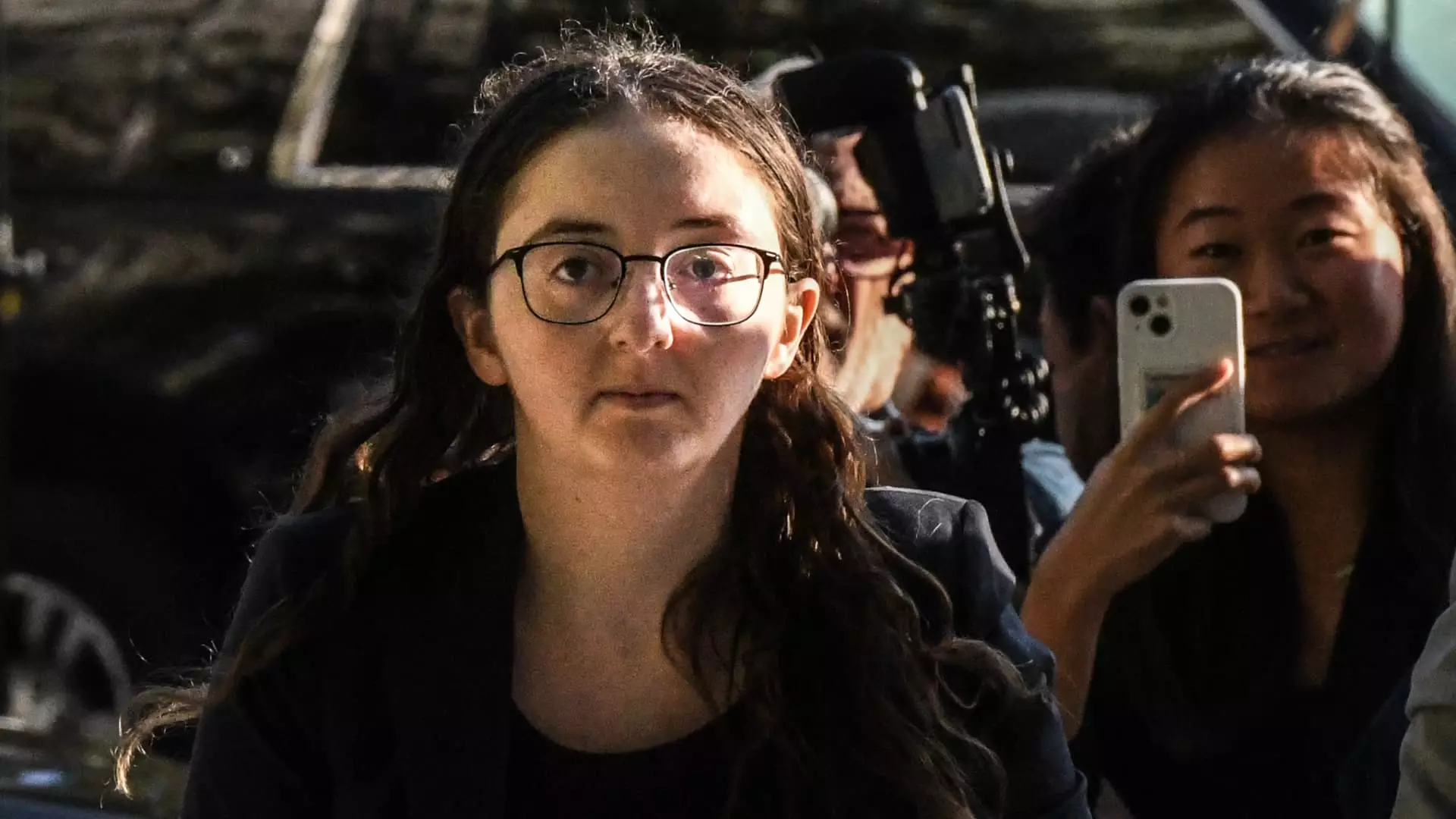In the wake of the dramatic collapse of FTX, a leading cryptocurrency exchange, the fallout has included not only the downfall of its founder, Sam Bankman-Fried but also significant scrutiny of Caroline Ellison, the former CEO of Alameda Research. With her cooperation with federal authorities seen as pivotal in untangling the complexities of the scandal, Ellison’s legal team is advocating for leniency in her sentencing, arguing that she should receive no prison time. This request is underscored by her decision to swiftly return to the United States from the Bahamas, where FTX was based, coupled with her willingness to provide crucial information about the mismanagement that characterized both FTX and Alameda Research.
Ellison’s cooperation has proven valuable to investigators as they navigate the labyrinthine complexities of cryptocurrency markets and financial misdeeds. By voluntarily presenting evidence and sharing her insights with the U.S. attorney’s office and financial regulators, Ellison has effectively positioned herself as a critical witness whose disclosures may mitigate future financial crimes related to digital currencies.
As the legal proceedings unfurled, Judge Lewis Kaplan highlighted Ellison’s testimony during Bankman-Fried’s trial, which ultimately led to the latter being sentenced to 25 years in prison for his role in defrauding investors. This reflects a stark contrast between their legal fates; while Bankman-Fried was convicted of multiple counts of fraud, Ellison avoided trial by accepting a plea deal in December 2022. Given the serious nature of the allegations—conspiracy and financial fraud—her legal team insists that her exemplary cooperation and early acceptance of responsibility warrant a sentence limited to time already served, along with supervised release.
The sentiment expressed in the court’s probation department report emphasizes Ellison’s overall character and ethical standing, noting that there is a consensus among those who know her about her integrity. This report fortifies her legal team’s claims for leniency, affirming that imposing a fine or an extended sentence would not only be unnecessary but counterproductive, given that Ellison poses no risk of returning to criminal behavior.
Beyond the legal frameworks and courtroom proceedings, it is crucial to consider the psychological ramifications of Ellison’s involvement in FTX’s catastrophic downfall. The narrative her lawyers have portrayed suggests that the intense pressure she faced while working under Bankman-Fried, which included long hours and a toxic work environment, warped her moral compass and led her into complicity in activities she later deemed unethical. Ellison reportedly experienced isolation, manipulated by Bankman-Fried who maintained emotional control over her, persuading her that her involvement was essential for the business’s survival.
These claims raise important questions about the dynamics within corporate environments, especially in high-pressure settings like FTX, where loyalty and personal relationships can cloud judgment. The depiction of Ellison as a victim of circumstance, influenced by an overpowering partner, invites a broader examination of the interplay between personal relationships and ethical responsibility within corporate governance.
As Ellison prepares for her sentencing hearing, she is at a turning point in her life. Having distanced herself from Bankman-Fried, she appears to be finding stability with a new partner who has been described as supportive and grounding. Mental health and emotional well-being play critical roles in recovery from such turbulent experiences, and her ability to rebound and contribute positively to the community may be a strong argument in her favor.
Additionally, Ellison has dedicated time to writing a novel unrelated to these events, which underscores her attempts to reclaim agency and redirect her life moving forward. The support from her friends and potential new associations offers a glimmer of hope for her future in a world where trust in financial systems has been deeply shaken.
As the legal system prepares to issue its verdict on Ellison’s case, the complex interplay of cooperation, personal relationships, and ethical accountability raises poignant questions. The outcome of her sentencing could serve as both a cautionary tale and a lesson on the importance of fostering ethical cultures in business environments, all while navigating the intricate world of cryptocurrency and financial regulations.

